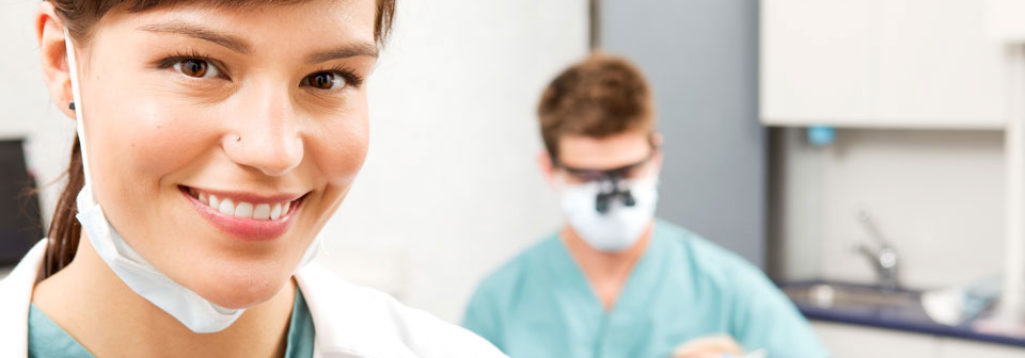
|

|

|

|

Is It Still Safe to Go to the Dentist During this Time of COVID?
If you have a teeth-cleaning scheduled, you may have to wait a while. However, what do you do if you have an urgent dental problem to take care of during this time of Coronavirus scare? Read this article to learn more about Coronavirus and how it affects dentistry.
How does coronavirus spread?
We are right now going through an unprecedented time, it almost seems like we’re living in a dystopian setting. However, it helps to learn all you can about the situation so you can take necessary precautions without being in panic all the time.
All over the world, the first and foremost concern is to stop the virus from spreading to more people. The Coronavirus spreads through respiratory droplets – or tiny droplets of saliva that fly through the air when you sneeze, cough, or even talk.
The normal procedures of dental work produce aerosols consisting of tiny droplets of saliva and/or blood in the air. This is what happens in the dentist’s office where he or she is required to use drill in cleaning or scaling of teeth.
There are currently some restrictions in place for dental treatments in line with standards for prevention of infection. You can still visit the dentist in case of emergencies such as a knocked-out tooth, however, optional procedures may be delayed. If you are not sure whether your dental issue is an emergency or not, give your dentist a call to find out.
Why are restrictions in place for limited dental treatment?
Dentists are trained to follow very strict infection control precautions. During all dental procedures, precautions are taken to lower the risk of transmitting infectious diseases. Dentists are trained to observe this sanitary discipline all the time while they work with patients assuming that patients may have an infection, and even if the patient is healthy and normal. These precautions keep both the dentists and the patients safe.
But the Coronavirus pandemic has changed the scene drastically. There is very heightened risk of aerosols affecting the dental staff, by landing on the work surfaces, which will put the staff and the next patient to high risk of contracting the disease if the previous patient was a carrier of the virus, even if they did not seem symptomatic. Because of asymptomatic patients, the risk of transmission is even higher because people around the asymptomatic person are unaware of the fact that they are at a risk of getting the disease from unsuspected source.
Normal dental care like checkups, teeth whitening, polishing teeth etc. can wait. It is not a blanket ban on work. We just have to put routine examinations and treatments on hold, and attend to dental emergencies only.
What amounts to routine dental care?
- Teeth whitening
- Teeth polishing and scaling
- Dental fillings
- Dental crown fitting
- Bridges and braces
- Teeth extractions (if not painful and is an optional procedure)
- Broken and chipped teeth treatments
- Bad breath called halitosis
What would amount to be dental emergency?
- Dental emergency means requirement of urgent care threatening the survival of the patient or causing unbearable pain which cannot be controlled by painkillers.
- Root canal or tooth extraction are allowed when the patient is in great pain caused by nerve damage in the tooth.
- Treatments are allowed to patients who have suffered damage to upper front teeth accidentally where filling may be needed.
- Ulcer management in the gums and mouth where bleeding or great pain is associated
- Provision of dental care to patients suffering from other diseases which may require dental treatment to stop further deterioration of health
- Managing patients whose dental problems may affect their cultural or social problems resulting in quick development and become worse.
- For medical emergency referred by another doctor for the survival of the patient.
If someone diagnosed with COVID19 has a dental emergency, then they should call the dentist and let the dentist know that they have been tested positive for coronavirus. They will be connected to a hospital where there are provisions for disease control in addition to dental care treatment. They can also be treated in a dental facility where special infection control machinery has been set up.
How to deal with the current situation
The coronavirus pandemic is likely to continue for some more time. It is advisable to take extra care of your teeth during this time to nip problems in the bud and prevent other issues.
It is vital to follow a rigid dental care routine to avoid any dental emergency. Follow a healthy balanced diet. Avoid sugary treats, and do not compromise on your brushing and flossing routine.
Do not lose hope. Together, we will survive this.






